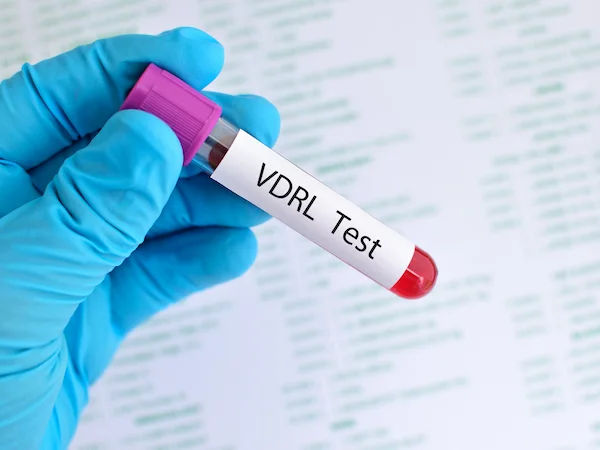How to Reduce RBC Count: A Comprehensive Guide to Managing Elevated Red Blood Cell Levels
Learn how to reduce RBC count with effective treatments, lifestyle changes, and natural remedies. Understand causes, symptoms, and when to seek medical help.

Written by Dr.Sonia Bhatt
Last updated on 3rd Jul, 2025

Introduction
Red blood cells (RBCs) are an important component of our blood. RBCs are responsible for transporting oxygen throughout the body. However, when the RBC count becomes too high, it can lead to various health complications. Understanding the causes, symptoms, and treatment options for high RBC counts is crucial for maintaining overall health.
What is RBC Count?
The RBC count refers to the number of red blood cells present in a specific volume of blood. RBCs are produced in the bone marrow and play a vital role in carrying oxygen from the lungs to various tissues and organs throughout the body. The body constantly regulates RBC production to maintain a balance that supports normal bodily functions. However, when this balance is disrupted, it can lead to a higher RBC count, this situation is also known as polycythaemia.
Normal Range of RBC Count
The normal range for RBC count can vary slightly depending on the laboratory and the individual’s age, sex, and health condition. However, the typical reference range for an adult is:
Men: 4.7 to 6.1 million cells per microliter (mcL) of blood
Women: 4.2 to 5.4 million cells per microliter (mcL) of blood
A count higher than the normal range is generally considered elevated and may indicate an underlying health condition.
Causes of High RBC Count
A raised RBC count can occur due to a variety of factors. Common reasons include chronic low oxygen levels, particular medical conditions, and certain lifestyle factors. Some of the primary causes of high RBC count include:
Dehydration: The blood volume decreases when the body is dehydrated. This causes a relative increase in the concentration of red blood cells.
Living at high altitudes: People living in areas with lower oxygen levels may experience an increase in RBC production to compensate for the reduced oxygen availability.
Medical conditions: Certain health conditions, such as polycythaemia vera, COPD, and sleep apnea, can lead to a higher RBC count.
Polycythemia Vera: It is a rare blood disorder in which the bone marrow produces excessive RBCs. This condition can cause thickening of the blood, leading to an increase in the risk of blood clots and other complications. Symptoms may include headache, dizziness, high blood pressure, and skin redness.
Chronic Obstructive Pulmonary Disease (COPD): COPD is a group of lung diseases, including chronic bronchitis and emphysema, leading to blockage in airflow which makes it difficult to breathe. In response to chronic low oxygen levels, the body may compensate by producing more RBCs, resulting in an elevated RBC count.
Sleep Apnea and Its Effects: Sleep apnea is a condition in which breathing stops and starts repeatedly during sleep, causing lower oxygen levels in the blood. This condition can stimulate the production of more RBCs. Untreated sleep apnea can lead to long-term health issues, including an increased RBC count.
Symptoms of High RBC Count
While some individuals with high RBC counts may not experience noticeable symptoms, others may show signs like:
Headaches
Dizziness or lightheadedness
Blurred vision
Shortness of breath
Fatigue
Skin redness or a ruddy complexion
Diagnosis of Elevated RBC Count
If you experience any of the symptoms above, seeing a doctor for further evaluation is necessary. Elevated RBC counts indicate an underlying medical condition requiring prompt attention and treatment. Various tests are available for the diagnosis of elevated RBC levels.
Blood Tests: A complete blood count (CBC) is the primary method for diagnosing an elevated RBC count. The test measures the number of red blood cells and other blood components, such as white blood cells and platelets. A CBC can help healthcare providers determine whether the RBC count is abnormally high and whether further investigation is needed.
Imaging and Other Diagnostic Tests: In some cases, imaging tests such as a chest X-ray or CT scan may be necessary to evaluate lung function, especially in conditions like COPD or sleep apnea. Other diagnostic tests may also be recommended to check for underlying health issues, such as polycythaemia vera.
Know Your RBC Count
Medical Treatments for Reducing RBC Count
If diagnosed, elevated RBC count should be treated immediately. Various medical treatments that are available to reduce RBC count are described below.
Phlebotomy: Phlebotomy is a common treatment for polycythaemia vera and other conditions that cause high RBC counts. The procedure involves removing a specific amount of blood to reduce the RBC concentration. Regular phlebotomy can help manage symptoms and prevent complications like blood clots.
Medications: In addition to phlebotomy, certain medications may be prescribed to help lower the RBC count. These may include medications that reduce bone marrow production of RBCs or prevent blood clots. Depending on the underlying cause, drugs like hydroxyurea and aspirin may be used.
Addressing Underlying Conditions: Treating the underlying cause of elevated RBC count is crucial. For example, if the high RBC count is due to COPD or sleep apnoea, addressing these conditions with appropriate treatments (e.g., oxygen therapy) can help normalise RBC levels.
Lifestyle Modifications
Along with medical therapy, lifestyle modification can also help to reduce RBC count.
Dietary Changes: A healthy diet can play a role in managing RBC count. Including foods rich in iron and folate, such as leafy greens, beans, and lean meats, can support healthy red blood cell production. However, for individuals with an elevated RBC count, it’s essential to avoid iron supplements unless prescribed by a doctor, as excessive iron intake can increase RBC production.
Hydration: Staying well-hydrated helps maintain normal blood volume and can prevent the concentration of red blood cells from becoming too high. Aim to drink plenty of water throughout the day, especially in hot weather or during physical activity.
Exercise and Physical Activity: Regular physical activity can help improve circulation, increase oxygen intake, and support overall cardiovascular health. However, if you have an underlying condition like COPD, it’s important to speak with your healthcare provider before beginning a new exercise regimen.
Natural Ways to Lower RBC Count
There are some natural remedies for the elevated RBC count, which can be used to reduce the RBC count.
Herbal Remedies: Some herbal remedies, like turmeric and ginger, have natural blood-thinning properties, which may help to reduce blood clotting risk in individuals with high RBC counts. However, always consult with a healthcare provider before using herbal supplements.
Stress Reduction Techniques: Chronic stress can impact overall health, including RBC production. Incorporating stress reduction techniques such as meditation, yoga, or deep breathing exercises can help support both physical and mental well-being.
Quit Smoking: Smoking is a major risk factor for many health conditions, including elevated RBC count. Quitting smoking can improve lung function, reduce the risk of COPD, and help normalise RBC levels over time.
Complications of Untreated High RBC Count
A high RBC count can cause the blood to become thicker, which increases the chances of heart problems like heart attacks or strokes. It's important to control high RBC levels to lower these risks. When the RBC count is too high, the blood is more likely to form clots. These clots can develop in veins or arteries, leading to serious issues like deep vein thrombosis (DVT), a pulmonary embolism, or a stroke.
Monitoring and Follow-Up Care
If you have been diagnosed with an elevated RBC count, regular check-ups with your healthcare provider are essential to monitor your condition and ensure that treatment is effective. Blood tests will be conducted periodically to assess RBC levels. Monitoring any new or changing symptoms and reporting them to your doctor is essential. Early detection and intervention can prevent complications and improve long-term health outcomes.
Conclusion
In summary, an elevated RBC count can be caused by various factors, ranging from dehydration to underlying medical conditions like polycythaemia vera and COPD. By understanding the causes, symptoms, and treatment options available, patients can take proactive steps to manage their health. Medical treatments, lifestyle modifications, and natural remedies can all play a role in reducing RBC counts and preventing potential complications. Early intervention is key to maintaining good health and preventing long-term issues.
Consult Top Haematologists
Consult Top Haematologists

Dr. Thorana Prakash M
General Physician
2 Years • MBBS
Bengaluru
PRESTIGE SHANTHINIKETAN - SOCIETY CLINIC, Bengaluru
Dr Sumanth R
General Physician
2 Years • MBBS
Bengaluru
PRESTIGE SHANTHINIKETAN - SOCIETY CLINIC, Bengaluru

Dr. Purvi Kadakia Kutty
Paediatric Haematologist
10 Years • MD Paediatrics FNB Pediatric Haem. & Onco.
Mumbai
Apollo Hospitals CBD Belapur, Mumbai

Dr Srikanth M
Haematologist
25 Years • MD,MRCP,FRCPath,dip.RCPath,CCT,Heam.
Chennai
Apollo Hospitals Cancer Centre Nandanam, Chennai
(50+ Patients)
Dr. Sachin Bansal
Haematologist
10 Years • DM (Clinical Hematology)
Bhopal
Apollo Sage Hospitals, Bhopal





